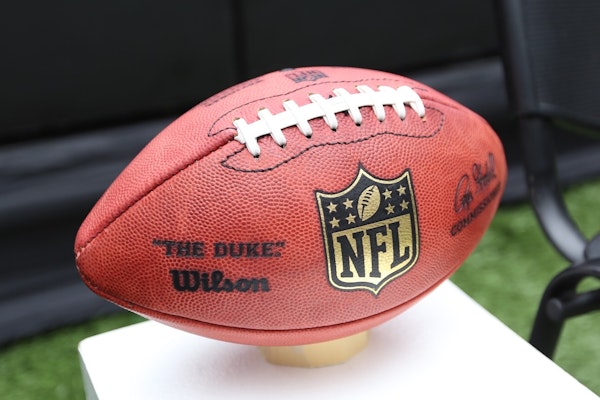
Disney World Modifies Indiana Jones Stunt Show After Worker Injured by Runaway Prop
A Disney World stunt show performer is recovering after intervening to stop a 400-pound boulder from reaching the crowd. The show has been altered pending a safety review.
January 5
Insurance Industry
Liability
Risk Management
Weird
Workers' Compensation
Florida

California Marijuana Law Complicates Intoxication Defense in Work Injury Claims
Courts require more than a positive THC test to prove workplace marijuana impairment. Here’s what claims adjusters need to know post-AB 2188.
December 22, 2025
Fraud
Legislation & Regulation
Litigation
Risk Management
Workers' Compensation
California

CHP Officer in California Sentenced for Workers’ Comp Fraud After Disability Claim Unravels
A California officer faked a disabling injury while collecting benefits, only to be caught performing manual labor on his property. The case underscores the vigilance required in high-risk workers’ comp claims.
December 22, 2025
Fraud
Insurance Industry
Legislation & Regulation
Litigation
Workers' Compensation
California

Tennessee Court Rejects Hospital Worker’s Mental Injury Claim for Late Notice
A Tennessee judge found a hospital worker failed to meet state notice rules after alleging psychological harm from workplace events. The claim was dismissed with prejudice after the worker did not respond to the motion.
December 15, 2025
Insurance Industry
Legislation & Regulation
Life & Health
Workers' Compensation
Tennessee

Employers Shift Benefits Strategy to Cut Costs and Manage GLP-1 Drug Coverage
Cost containment takes priority over talent attraction as employers battle rising healthcare costs and embrace transparency and digital health tools.
December 15, 2025
Insurance Industry
Life & Health
Risk Management
Technology
Workers' Compensation

Mental Health Claims Reshape Workers’ Comp: PTSD and Stress-Only Coverage Expands
PTSD and psychological injury benefits without physical harm could spark new challenges for claims adjusters, from rising costs to legislative uncertainty.
November 13, 2025
Insurance Industry
Legislation & Regulation
Life & Health
Workers' Compensation

Truck Driver Injury Suit Against Non-Subscribing Employer Not Subject to Arbitration
A Texas appellate court sided with a commercial driver, finding he was exempt from arbitration under the Federal Arbitration Act’s transportation worker exception.
November 5, 2025
Liability
Litigation
Workers' Compensation
Texas

Mental Health Crisis Escalates Among Construction Workers, New Survey Finds
A new industry-wide survey reveals sharp increases in anxiety, depression, substance misuse, and missed work due to mental health—raising concerns for insurers and employers alike.
November 5, 2025
Liability
Life & Health
Workers' Compensation

California Court Rules NFL Team Exempt from Workers’ Comp Claim by Retired Player
A retired NFL player’s claim for cumulative injury is denied under California’s tightened workers’ comp rules for out-of-state athletes, highlighting key jurisdictional limits.
October 15, 2025
Legislation & Regulation
Liability
Workers' Compensation
California
Georgia

Workers Comp Sees Eighth Year of Underwriting Gains Despite 2024 Premium Dip
2024 saw premium decline but continued strong underwriting and operating margins, with early 2025 data pointing to another profitable year in the WC line.
October 15, 2025
Insurance Industry
Legislation & Regulation
Underwriting
Workers' Compensation

P/C Insurance Holds Steady in 2025 Despite Inflation, Tariffs, and Natural Disasters
Despite global uncertainty and catastrophe losses, the property/casualty insurance sector is on pace for a second profitable year. Adjusters should note shifts in underwriting performance across key lines.
October 10, 2025
Auto
Catastrophe
Insurance Industry
Property
Workers' Compensation
California

Mental Health Tops Safety Concerns for Workers, Revealing Employer-Employee Disconnects
A new Pie Insurance survey reveals stark differences in how employers and employees view safety risks, training, and communication—raising concerns for claims professionals.
October 8, 2025
Insurance Industry
Life & Health
Risk Management
Workers' Compensation

Behavioral Health Barriers Are Slowing Recovery for Injured Workers with Knee and Shoulder Claims
New WCRI research finds that fear, poor coping, and low mood are common among injured workers and lead to delayed recovery and higher costs in comp knee and shoulder claims.
September 22, 2025
Education & Training
Life & Health
Risk Management
Workers' Compensation

Lyft Pays $19.4 Million to Settle Worker Misclassification Audit in New Jersey
Lyft has agreed to pay $19.4 million to New Jersey after an audit found it misclassified over 100,000 drivers as independent contractors between 2014 and 2017.
September 19, 2025
Insurance Industry
Legislation & Regulation
Litigation
Workers' Compensation
Massachusetts
New Jersey

Liberty Mutual Reveals 25 Years of Workplace Injury Trends and Costs
Liberty Mutual’s 2025 Workplace Safety Index highlights how workplace injuries have evolved over 25 years, revealing costly trends and the impact of targeted prevention.
July 23, 2025
Education & Training
Insurance Industry
Risk Management
Workers' Compensation





